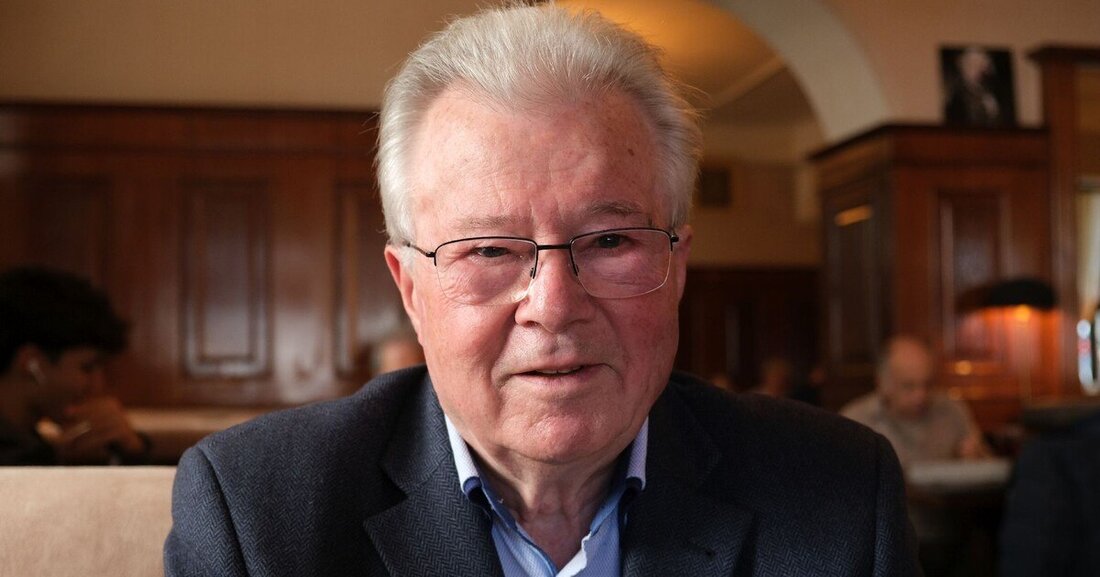We fight for our pickle system”
Car dealership owner and Chamber of Commerce official Josef Puntinger is happy to pass on his wealth of experience.

We fight for our pickle system”
AUTOMOTIVE.AT: Mr. Puntinger, your traditional car dealership in Leoben represents the brands Fiat, Fiat Professional and Mitsubishi. You are therefore also affected by the introduction of the agency system in the Stellantis Group – how do you deal with it?
JOSEF PUNTINGER: I am calm about this development and am waiting to see how the agency system will prove itself in practice. I joined the car dealership founded by my father in 1969, and even then we officially sold our Steyr-Fiat cars, Steyr trucks and Puch motorcycles in the name of the manufacturer. This was already a kind of fake agency system that was only replaced by the dealer system with the introduction of VAT in 1973. Now the pendulum is swinging in the other direction again. I've been in the industry for so long that I feel like everything repeats itself.
How do you assess the current technical development in vehicle construction, which is dominated by electrification?
For a long time I was skeptical as to whether electromobility would prevail, but today I admit that this change is inevitable. Manufacturers must reduce their fleet consumption, otherwise they risk high fines. The demand for electric and hybrid vehicles is currently increasing, especially in urban areas, where the charging infrastructure is already well developed. For example, at the Puntinger car dealership, which I handed over to my daughter and son-in-law in 2006, we are very satisfied with the sales figures for the Fiat 500e.
You held numerous positions at the Chamber of Commerce. Most recently, you headed the Technology Competence Center in the Federal Vehicle Technology Guild. What tasks were involved?
I took on my first official role in the Chamber of Commerce in 1975. I then worked through all areas - from regional office chairman to the vehicle dealer committee to federal guild master. In 2016 I became head of the Technology Competence Center, where the basis for the §57a review and the catalog of defects is created. It is important to me to point out that the Federal Guild is strongly committed to preserving our “§57a pickle system”, which is repeatedly threatened at EU level. The §57a review is becoming increasingly complex and therefore evaluated more often. We definitely have to stick with it. In 2007, I launched the expert conference, which is made up of members of motorists' clubs, vehicle manufacturers and the federal guilds for vehicle technology and agricultural machinery technology. Shortly before the Covid crisis, we started the §57a dialogue, in which the expert conference exchanges ideas with representatives of the state authorities once or twice a year. I recently handed over the management function of the Technology Competence Center to Thomas Marichhofer, the state guild master for vehicle technology in Styria.
In your opinion, are the workshops already sufficiently prepared for technological change?
The realization that the trend is towards electromobility has now reached all companies; the high-voltage training levels HV1 and HV2 are already included in the vocational school curriculum. According to a study by the ADAC, the repair effort for combustion engines and electric cars is about the same, but the maintenance effort is significantly lower for electric cars. We are therefore considering which new services we can recommend to our companies so that they can make up for any decline in sales. For example, regular software updates that are required by the manufacturer come into question. In the Federal Guild, we are fighting to ensure that vehicle data remains the property of car owners so that they can continue to drive to the workshop of their choice.
After so long in the automotive industry, has driving lost any of its appeal for you today?
Not at all. Before I joined my father's business, I graduated from the HTL and started studying mechanical engineering at Graz University of Technology. The first car I used to commute from Leoben to Graz was a Fiat 600. Today I drive a Mitsubishi Outlander Plugin Hybrid - a sensible vehicle with sophisticated bridge technology under the hood. The car that I certainly enjoyed the most in my long driving career was in the 1990s: a BMW 850i with a 12-cylinder engine.

 Suche
Suche
 Mein Konto
Mein Konto